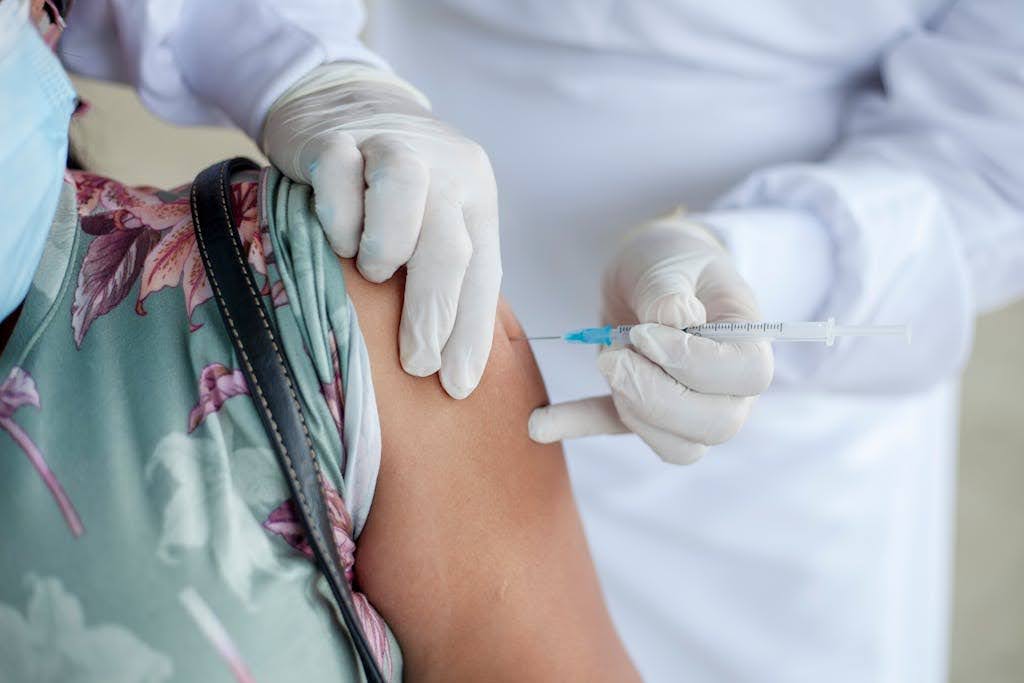Receiving a flu shot is an essential step in protecting oneself against seasonal influenza. While the vaccine is generally safe and effective, there are certain precautions and behaviors that individuals should avoid immediately after getting vaccinated. This article outlines: what to avoid after flu shot, to ensure optimal efficacy and minimize any potential side effects.
 Understanding the Flu Shot
Understanding the Flu Shot
The flu shot is designed to stimulate the immune system to produce antibodies against the influenza virus. It is typically administered annually, as the virus strains can change from year to year. While most people experience minimal side effects, understanding what to avoid can enhance the vaccine's effectiveness and your overall health. This annual vaccination is particularly crucial for vulnerable populations, such as the elderly, young children, and individuals with chronic health conditions, as they are at a higher risk for severe complications from the flu.
Common Side Effects
Before diving into what to avoid, it’s important to recognize common side effects that may occur after receiving the flu shot. These can include:
These side effects are generally mild and resolve within a few days. However, knowing what to avoid can help mitigate these symptoms and ensure a smoother recovery. For instance, it is advisable to refrain from intense physical activity for at least 24 hours post-vaccination, as this can exacerbate soreness and fatigue. Additionally, staying well-hydrated and maintaining a balanced diet rich in vitamins and minerals can support your immune system and help alleviate any discomfort.
Moreover, it’s beneficial to be aware of certain medications that may interfere with the vaccine's effectiveness. For example, high doses of corticosteroids or immunosuppressive drugs can dampen the immune response, making it less likely for your body to produce sufficient antibodies. Consulting with a healthcare provider about any medications you are taking can provide clarity on the best approach to take before and after receiving the flu shot. Taking these proactive steps can significantly enhance the benefits of the vaccination, ensuring that you are well-protected during flu season.
Activities to Avoid
After receiving a flu shot, certain activities can interfere with the body’s immune response or exacerbate side effects. Here are some key practices to avoid:
Strenuous Physical Activity
Engaging in intense workouts or strenuous physical activities immediately after getting vaccinated can lead to increased soreness at the injection site and may even cause fatigue. It’s advisable to give your body time to adjust and recover. The immune system is busy processing the vaccine, and pushing your body too hard can detract from this essential function.
Instead of hitting the gym hard, consider lighter activities such as walking or gentle stretching. This approach allows for movement without putting undue stress on your body. Additionally, incorporating restorative practices like yoga or tai chi can be beneficial, as they promote relaxation and help maintain mobility without overexertion.
Hot Showers or Baths
Exposing the injection site to hot water can exacerbate swelling and discomfort. While it might be tempting to relax in a hot bath, it’s best to stick to lukewarm water for the first 24 hours after receiving the shot. This precaution helps minimize inflammation and promotes a more comfortable recovery. Furthermore, hot water can increase blood flow to the area, which may enhance any tenderness you’re experiencing.
Instead, consider taking a cool or room-temperature shower, which can be soothing and refreshing. Adding Epsom salts to your bath can also provide relief without the heat, as they are known for their muscle-relaxing properties and can help ease any tension in your body during the recovery period.
Alcohol Consumption
Alcohol can potentially weaken the immune system, which is counterproductive after receiving a flu shot. It’s advisable to avoid alcohol for at least 24 hours post-vaccination. This allows your body to focus on building immunity without the additional burden of processing alcohol. Moreover, alcohol can dehydrate you, which may exacerbate any mild side effects like headaches or fatigue that can occur after vaccination.
Instead of reaching for a drink, consider hydrating with plenty of water or herbal teas, which can support your body’s recovery process. Consuming nutrient-rich foods, such as fruits and vegetables, can also help bolster your immune system and provide the necessary vitamins and minerals to aid in your overall health during this time.
 Dietary Considerations
Dietary Considerations
Your diet can play a significant role in how your body responds to the flu shot. Here are some dietary practices to avoid:
High-Sugar Foods
Foods high in sugar can lead to inflammation and may weaken the immune response. After getting vaccinated, it’s wise to steer clear of sugary snacks, sodas, and desserts. Instead, focus on nutrient-dense foods that support immune health, such as fruits, vegetables, and whole grains.
Incorporating foods rich in antioxidants, like berries and leafy greens, can further bolster your immune system, helping your body to effectively respond to the vaccine. Additionally, healthy fats from sources like avocados and nuts can provide essential nutrients that support overall health and well-being.
Excessive Caffeine
While moderate caffeine consumption is generally safe, excessive intake can lead to dehydration and increased anxiety, which may heighten feelings of fatigue or discomfort post-vaccination. It’s best to limit caffeine intake and ensure proper hydration through water and herbal teas.
Herbal teas, such as chamomile or ginger, not only hydrate but also offer soothing properties that can help alleviate any post-shot discomfort. Furthermore, incorporating foods rich in magnesium, like spinach and pumpkin seeds, can help to relax the body and promote better sleep, which is crucial for recovery and immune function after vaccination.
Personal Care and Hygiene
Post-vaccination care is crucial for ensuring a smooth recovery. Here are some hygiene practices to avoid:
Touching the Injection Site
It’s important to avoid touching or rubbing the injection site excessively. This can lead to irritation or infection. If you feel the need to touch the area, ensure your hands are clean and avoid applying pressure. Additionally, consider wearing loose-fitting clothing to minimize friction against the injection site, which can help reduce discomfort and promote healing. If you notice any unusual redness or swelling, it’s advisable to consult a healthcare professional for further guidance.
Skipping Hydration
Dehydration can exacerbate side effects like headaches and fatigue. After receiving the flu shot, prioritize hydration by drinking plenty of water. Avoiding dehydration will help your body recover more effectively. Incorporating electrolyte-rich beverages can also be beneficial, as they can help replenish lost minerals and support your immune system. Furthermore, consuming hydrating foods such as fruits and vegetables can enhance your overall hydration levels while providing essential nutrients that aid in recovery.
Understanding Your Body's Response
Everyone’s body reacts differently to vaccinations. It’s essential to listen to your body and recognize when something feels off. Here are some signs to watch for:
Severe Reactions
While rare, some individuals may experience severe allergic reactions to the flu shot. Symptoms can include difficulty breathing, swelling of the face or throat, and a rapid heartbeat. If any of these symptoms occur, seek medical attention immediately. It's important to note that these reactions are typically associated with specific components of the vaccine, such as egg proteins or preservatives, and understanding your own allergies can help mitigate risks. Always inform your healthcare provider about any known allergies prior to receiving a vaccine.
Prolonged Symptoms
If side effects persist beyond a few days or worsen, it’s advisable to consult a healthcare professional. This ensures that any underlying issues are addressed and provides peace of mind. Some common side effects, such as soreness at the injection site or mild fever, are generally short-lived and can be managed with over-the-counter pain relievers. However, if you notice unusual symptoms like persistent fatigue or joint pain, it may be worth discussing with your doctor, as these could indicate a more complex reaction or an unrelated health issue that needs attention.
Understanding Common Side Effects
In addition to severe reactions, many people experience mild side effects after vaccination, which are a normal part of the body's immune response. These can include fatigue, headaches, and mild muscle aches. These symptoms typically resolve within a few days and indicate that your body is building protection against the virus. Staying hydrated and resting can help alleviate these symptoms. It’s also beneficial to keep a record of your reactions, as this information can be valuable for future vaccinations and discussions with your healthcare provider.
Importance of Post-Vaccination Monitoring
After receiving a vaccination, it’s crucial to monitor your body’s response for at least 15 minutes, especially if it’s your first time receiving that particular vaccine. This observation period allows healthcare professionals to quickly address any immediate allergic reactions. Additionally, consider keeping a journal of your symptoms and any changes you notice in the days following the vaccination. This proactive approach not only aids in your own health management but also contributes to broader public health data, helping researchers understand vaccine responses across different populations.
When to Seek Medical Advice
Knowing when to consult a healthcare provider is crucial for post-vaccination care. Here are some scenarios when seeking medical advice is recommended:
Unusual Symptoms
 If you experience symptoms that are not typical, such as high fever, persistent pain, or unusual swelling, it’s important to reach out to a healthcare professional. These symptoms may indicate an adverse reaction or infection. Additionally, if you notice symptoms like difficulty breathing, hives, or rapid heartbeat, these could be signs of a more serious allergic reaction. In such cases, immediate medical attention is necessary, as timely intervention can be critical.
If you experience symptoms that are not typical, such as high fever, persistent pain, or unusual swelling, it’s important to reach out to a healthcare professional. These symptoms may indicate an adverse reaction or infection. Additionally, if you notice symptoms like difficulty breathing, hives, or rapid heartbeat, these could be signs of a more serious allergic reaction. In such cases, immediate medical attention is necessary, as timely intervention can be critical.
Pre-existing Conditions
Individuals with pre-existing health conditions should consult their healthcare provider before receiving the flu shot. If any unusual symptoms arise post-vaccination, it’s wise to seek advice tailored to your specific health needs. For instance, those with autoimmune disorders or compromised immune systems may experience different reactions and should have a clear plan in place with their healthcare provider regarding what to monitor after vaccination. Furthermore, understanding the potential interactions between the vaccine and any medications being taken can help in managing expectations and ensuring safety.
Monitoring Side Effects
After receiving a vaccine, it's essential to monitor any side effects that may develop over the following days. Common reactions like soreness at the injection site, mild fever, or fatigue are generally expected and resolve on their own. However, keeping a detailed record of these symptoms can be beneficial, especially if they persist beyond a few days or escalate in severity. This information can assist healthcare providers in making informed decisions about your health and any further interventions that may be necessary.
Consulting with Family History
Family medical history can also play a significant role in determining when to seek medical advice. If there is a history of severe allergic reactions to vaccines or other medical conditions that could complicate vaccination, it’s prudent to discuss these factors with a healthcare provider before and after receiving the vaccine. Understanding your family's health background can provide valuable insights into potential risks and help tailor a more personalized approach to your post-vaccination care.
Make Your Flu Shot Work Smarter with Doctronic
Getting your flu shot is a smart move—but knowing what to avoid afterward is just as important. With Doctronic by your side, it’s easy to stay informed about what supports your immune system and what might hold it back. From skipping that extra workout to making smarter food and drink choices, small steps can lead to stronger protection. By tuning into your body and seeking guidance when needed, you’re setting yourself up for a healthier, worry-free season.



 Understanding the Flu Shot
Understanding the Flu Shot Dietary Considerations
Dietary Considerations If you experience symptoms that are not typical, such as high fever, persistent pain, or unusual swelling, it’s important to reach out to a healthcare professional. These symptoms may indicate an adverse reaction or infection. Additionally, if you notice symptoms like difficulty breathing, hives, or rapid heartbeat, these could be signs of a more serious allergic reaction. In such cases, immediate medical attention is necessary, as timely intervention can be critical.
If you experience symptoms that are not typical, such as high fever, persistent pain, or unusual swelling, it’s important to reach out to a healthcare professional. These symptoms may indicate an adverse reaction or infection. Additionally, if you notice symptoms like difficulty breathing, hives, or rapid heartbeat, these could be signs of a more serious allergic reaction. In such cases, immediate medical attention is necessary, as timely intervention can be critical.